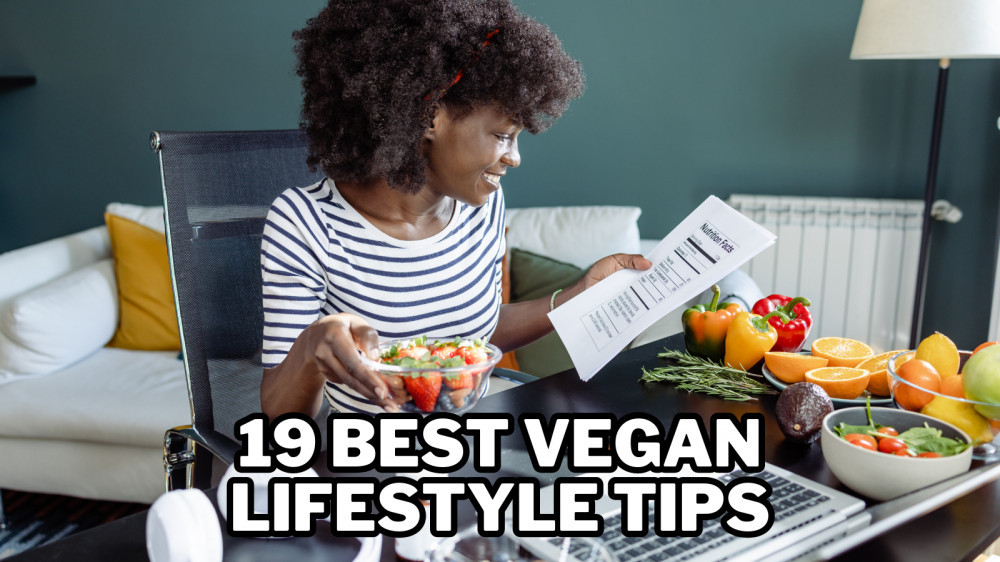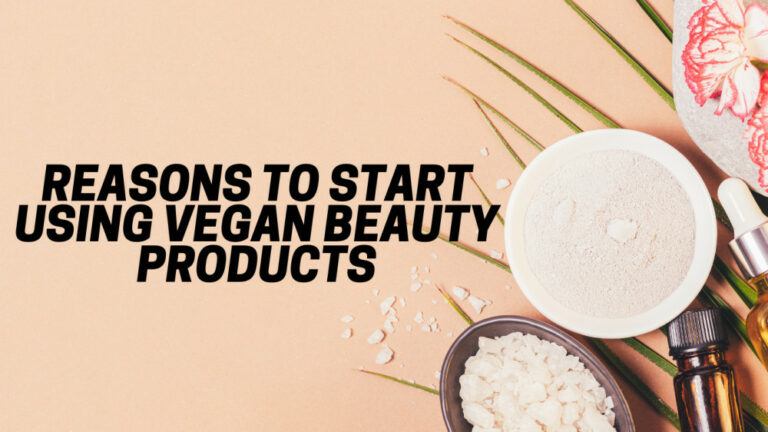19 Best Vegan Lifestyle Tips
19 Best Vegan Lifestyle Tips
If you're looking for ways to enhance your vegan lifestyle, you've come to the right place. To assist you in staying on track and getting the most out of your trip, we've compiled a collection of the greatest vegan lifestyle advice. Our expert tips cover nutrition and meal planning, self-care, and sustainability.
So, let's dive in and explore the top vegan lifestyle tips to help you live a healthier, more compassionate, and environmentally conscious life.
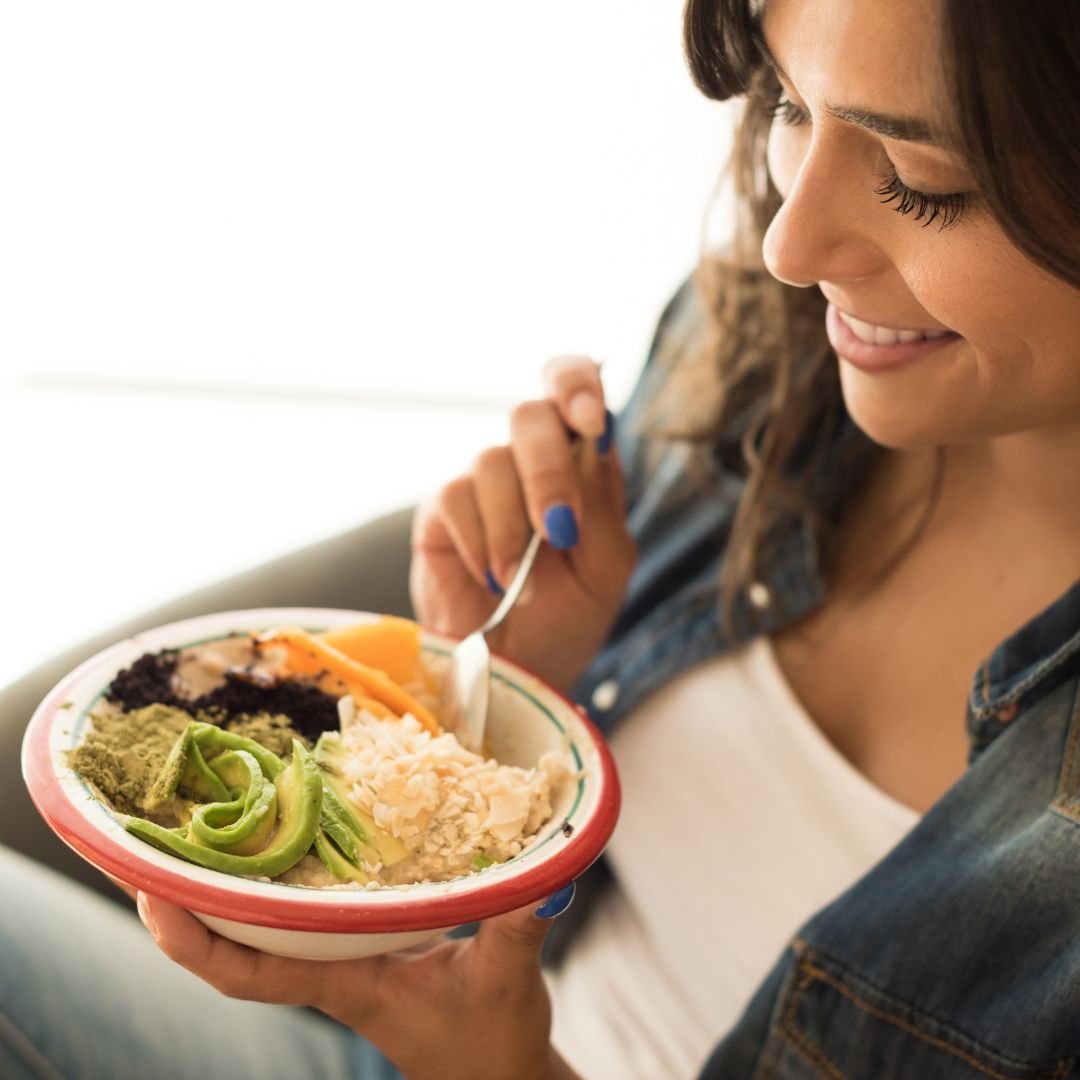
What is The Vegan Lifestyle?
The vegan lifestyle is about avoiding animal product use in all areas of life. This means eliminating meat, dairy, and eggs from your diet and avoiding products made from animal-derived ingredients such as leather, wool, and silk.
Vegans often avoid other products involving animal exploitation or testing, such as cosmetics and cleaning products. For example, a vegan may opt for shoes made from plant-based materials rather than leather or use a cruelty-free and vegan cleaning product instead of one tested on animals.
The vegan lifestyle is not just a diet but a philosophy that seeks to minimize harm to animals and the environment.
Best Vegan Lifestyle Tips
1. Start With Small Changes
If you're new to veganism, making a complete transition all at once can be daunting. Instead, starting with small changes to your diet and lifestyle is better.
A smart place to start is to increase the amount of plant-based meals you eat. You can try out new vegan recipes or swap the meat in your favorite meals for plant-based alternatives.
Another easy change is using vegan personal care products, such as shampoo, body wash, and deodorant. Look for “vegan” or “cruelty-free” products on the label.
These small changes can make a big difference in your health and the environment, and over time, you can gradually make more changes as you feel comfortable.

2. Research Your Nutrition
Following a vegan lifestyle can provide many health benefits, but it's important to ensure you get all the necessary nutrients to maintain optimal health.
Nutrients like protein, iron, calcium, and vitamins B12 and D can be harder to come by on a vegan diet, so it's important to research vegan sources of these nutrients and ensure you're incorporating them into your meals.
For example, you can get protein from beans, lentils, tofu, quinoa and calcium from leafy greens, nuts, and fortified plant-based milk.
Vitamin B12, essential for nerve function and DNA synthesis, is typically found only in animal products, so vegans should consider taking a B12 supplement or eating fortified foods like plant-based milk and cereals.
By researching and planning your nutrition, you can ensure you get all the essential nutrients for optimal health on a vegan diet.
3. Find Vegan Alternatives
Transitioning to a vegan lifestyle does not mean you have to give up your favorite foods. Instead, you can find vegan alternatives to meat, dairy, and eggs in your recipes. We can use tofu and tempeh as a meat substitute in various dishes such as stir-fries, sandwiches, and curries.
Additionally, you can use vegan cheese in pizzas, sandwiches, and pasta dishes. To replace eggs in your recipes, silken tofu, aquafaba (the liquid from canned chickpeas), and flax or chia seeds mixed with water can be used as an egg substitute in baking.
Incorporating these vegan alternatives into your diet can help you stay on track with your vegan lifestyle while enjoying the flavours and textures of your favorite foods.

4. Connect With The Vegan Community
Connecting with the vegan community can be an excellent way to get support, tips, and resources as you transition to a vegan lifestyle.
Joining a vegan group or community can give you a sense of community and a space to share your experiences and challenges.
You can find local vegan groups on social media platforms like Facebook, Twitter, and Instagram or by searching online for vegan communities in your area.
Attending vegan events such as potlucks, festivals, or cooking classes can also be a great way to meet like-minded individuals and learn more about veganism.
You can share recipes, ask for advice, and connect with people with similar values and interests. By connecting with the vegan community, you can feel more motivated and confident in your decision to adopt a vegan lifestyle, and you can also learn about the different ways you can make a positive impact on the world.
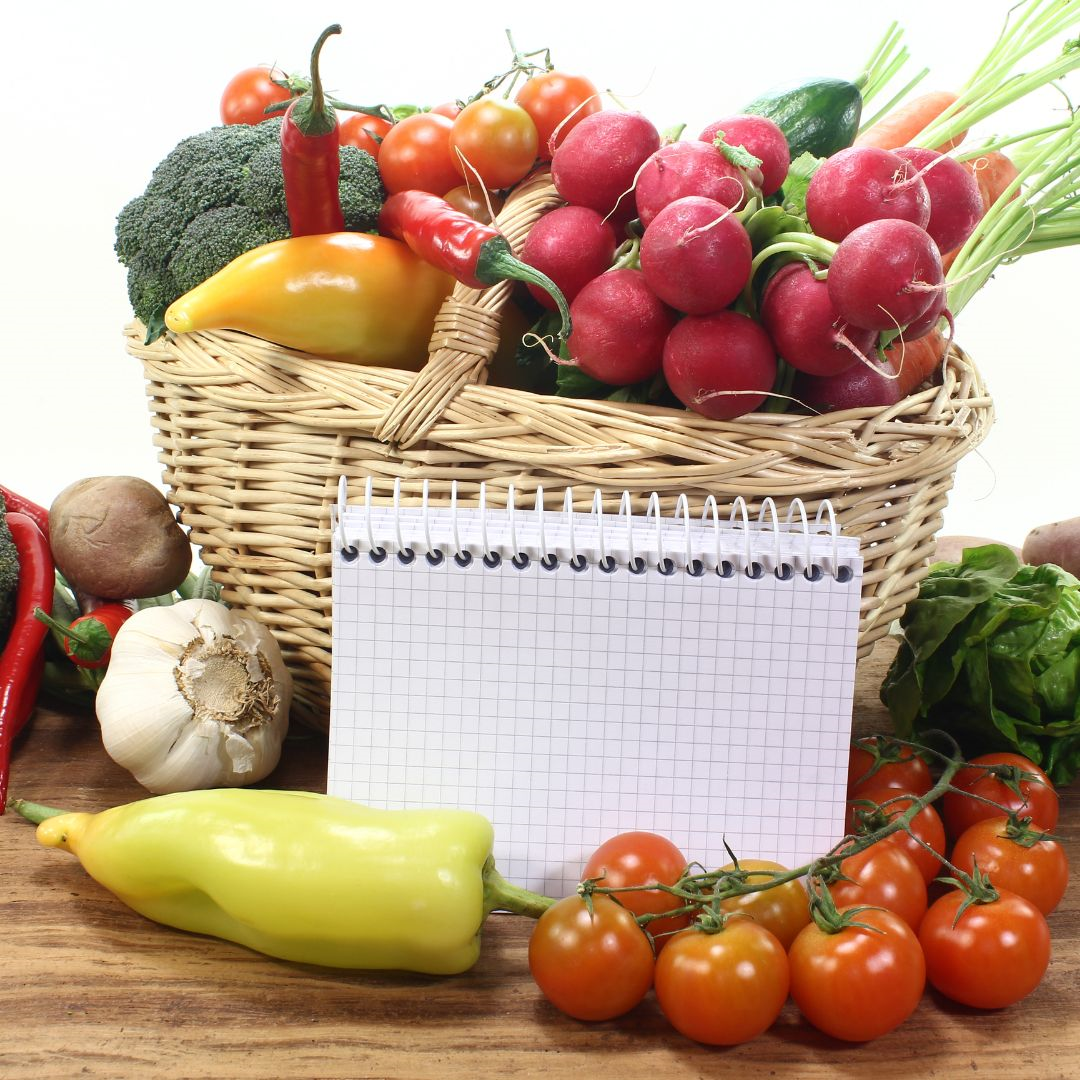
5. Be Mindful Of Your Purchases
Awareness of your purchases is essential to veganism as it extends beyond just your diet. It's crucial to consider the impact of your assets on the environment and animal welfare.
When shopping for clothes, look for products made from sustainable materials such as organic cotton or bamboo. Check for labels that indicate whether the item was made in a fair trade facility or is certified by organizations such as the Fair Wear Foundation.
Similarly, when shopping for personal care products, look for cruelty-free items made with natural, plant-based ingredients.
It's also important to avoid products that contain animal-derived ingredients such as beeswax or lanolin. For household items, opt for environmentally friendly products made from recycled materials, such as cleaning or paper products. By being mindful of your purchases, you can positively impact the world and reduce your environmental footprint.
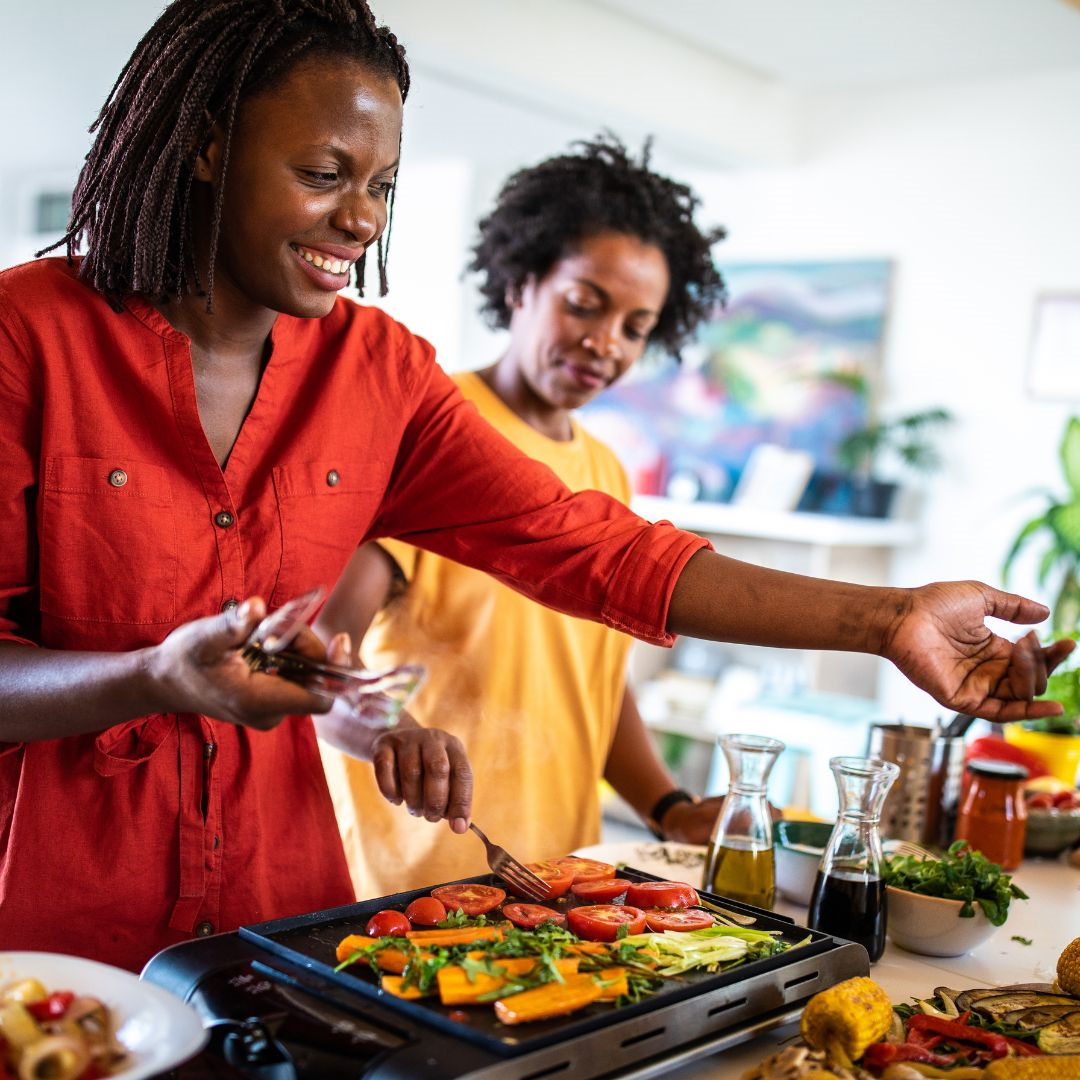
6. Educate Yourself And Others
Educating yourself and others is essential to veganism. It's not just about what you eat but also about environmental issues like deforestation, water pollution, and greenhouse gas emissions.
By learning about the impact of animal agriculture on the planet, you can become more aware of the consequences of your actions. You can also learn about treating animals raised for food and wool.
By educating yourself, you can make more informed choices and inspire others to make positive changes in their lives. Sharing your knowledge with others can help them understand the benefits of a vegan lifestyle and encourage them to make more conscious choices.
It can also help to dispel common misconceptions about veganism and provide support to those who are curious about making the transition to a vegan lifestyle.
7. Plan Your Meals
Planning your meals is an important aspect of a vegan lifestyle, as it can help you stay on track and avoid the temptation to eat non-vegan options when you're hungry and in a rush.
Meal planning can also save you time and money by allowing you to buy ingredients in bulk and use them throughout the week. Start by making a meal plan for the week, and choose recipes that are easy to prepare and that you'll enjoy.
Make a shopping list of all the ingredients you'll need, and try to shop at farmers' markets or local grocery stores to support sustainable and ethical farming practices.
Preparing your meals and snacks can also help you stay on track, as you'll have healthy options when you're hungry. You can prepare meals in advance and store them in the fridge or freezer or chop up vegetables and fruit for easy snacking. By planning your meals ahead of time, you'll be more likely to stick to a healthy and sustainable vegan lifestyle.
8. Don't Be Too Hard On Yourself
Transitioning to a vegan lifestyle can be challenging, and it's important to remember that nobody is perfect. Be easy on yourself if you make mistakes or slip up and eat something non-vegan.
It's all part of the learning process, and every small step you take towards a more plant-based lifestyle is a step in the right direction. Instead of dwelling on mistakes, focus on progress and celebrate your successes.
Remember that transitioning to a vegan lifestyle is a journey, not a destination, and it's all about doing the best you can to positively impact your health, the environment, and animal welfare.
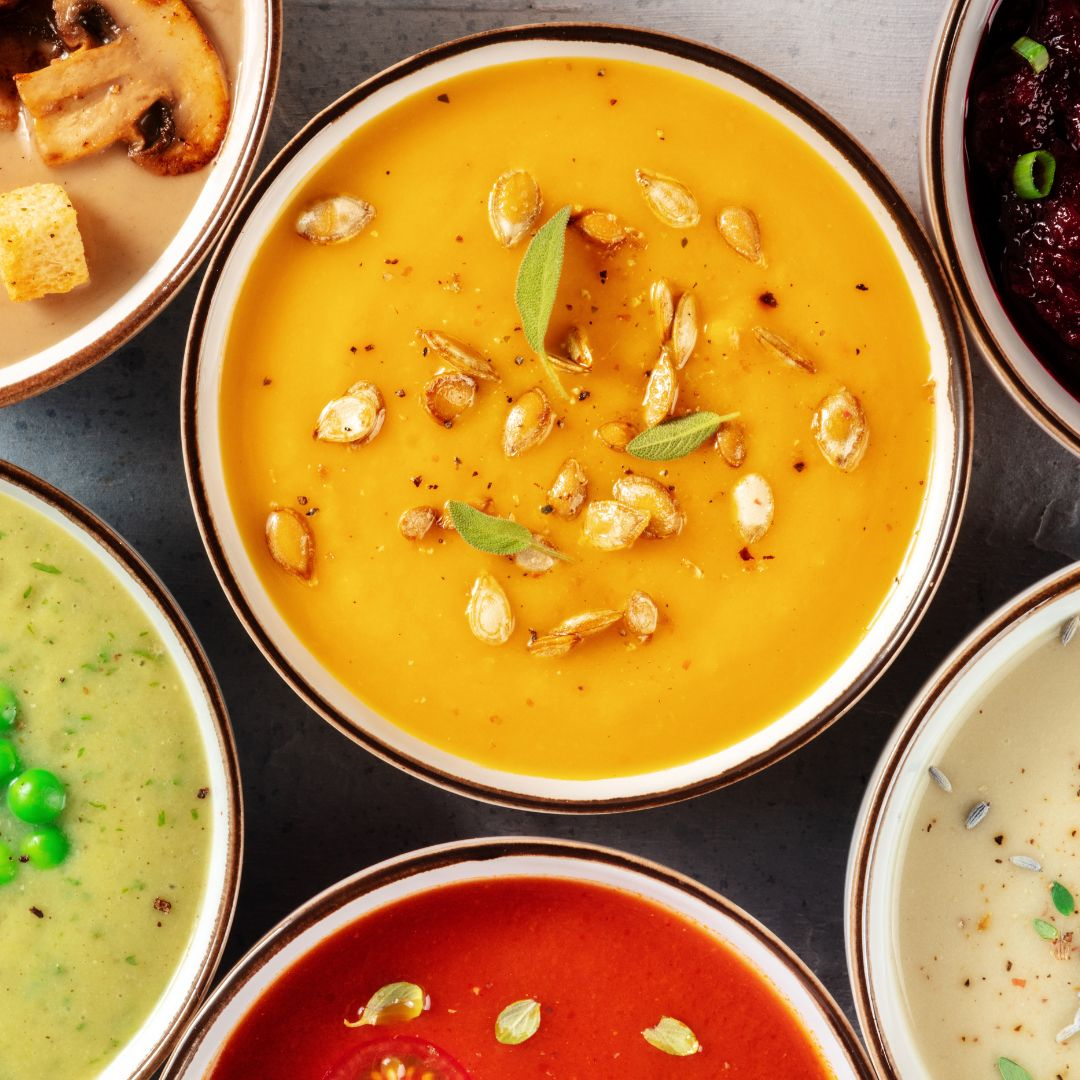
9. Experiment With New Foods And Recipes
When transitioning to a vegan diet, it can be helpful to experiment with different plant-based ingredients and recipes to find what works best for you. One way to start is by finding plant-based alternatives to your favorite non-vegan dishes, such as tofu or tempeh.
Many online resources, such as vegan cooking blogs and YouTube channels, offer recipe ideas and cooking tips. Trying new foods and recipes can also be a fun way to share the vegan lifestyle with friends and family, as you can invite them to try your creations and show them how tasty and satisfying plant-based eating can be.
10. Learn To Read Labels
Reading food labels is essential when adopting a vegan lifestyle. Many foods may contain non-vegan ingredients, even if they seem plant-based. Therefore, knowing how to read labels is important to ensure your food is vegan.
Start by looking for products explicitly labelled vegan, which can make the shopping process easier. However, if a product is not labelled vegan, you must check the ingredient list for animal-derived ingredients. Some common non-vegan elements include casein, gelatin, whey, and honey.
By learning to read labels, you can make informed choices about your food and avoid accidentally consuming animal products.
11. Stay hydrated
Staying hydrated is crucial for good health, especially when transitioning to a vegan diet. Water helps regulate body temperature, aids digestion, and helps flush toxins out of the body.
When you go vegan, you may eat more fibrous foods, which can dehydrate if you don't drink enough water. Drinking at least 8 glasses of water daily is recommended, but the amount you need can vary based on your body size, activity level, and climate.
Carry a reusable water bottle with you wherever you go to make it easier to stay hydrated. You can also add fresh fruits or herbs to your water to make it more interesting and flavourful.

12. Get Enough Rest And Exercise
Getting enough rest and exercise are both essential components of a healthy lifestyle, regardless of whether you're vegan. Adequate sleep helps to reduce stress levels, improve cognitive function, and promote overall physical and mental health. Experts recommend that adults aim for seven to nine hours of sleep each night.
Exercise is also important for maintaining good health. Regular physical activity can help to improve cardiovascular health, boost mood, and reduce the risk of chronic diseases such as diabetes, obesity, and heart disease. On most days of the week, try to get in at least 30 minutes of moderate-intensity activity, like brisk walking or cycling.
There are many different types of exercise to choose from, so find something that you enjoy, and that fits your lifestyle. You could join a local sports team or fitness class, run or hike outdoors, or practice yoga or meditation for relaxation and stress relief. Whatever form of exercise you choose, listen to your body and start slowly if you're new to physical activity.
13. Celebrate Your Successes
Acknowledging and celebrating your successes is important to maintaining motivation and staying on track with a vegan lifestyle. It can help you to feel proud of your accomplishments and reinforce your commitment to your values.
Celebrating your successes can be as simple as giving yourself a pat on the back, treating yourself to a small reward, or sharing your achievement with others.
Recognizing and celebrating your successes can also help you set new goals and continue to challenge yourself. Remember that every small step counts, and taking the time to celebrate your progress can help to keep you motivated and engaged in your vegan journey.
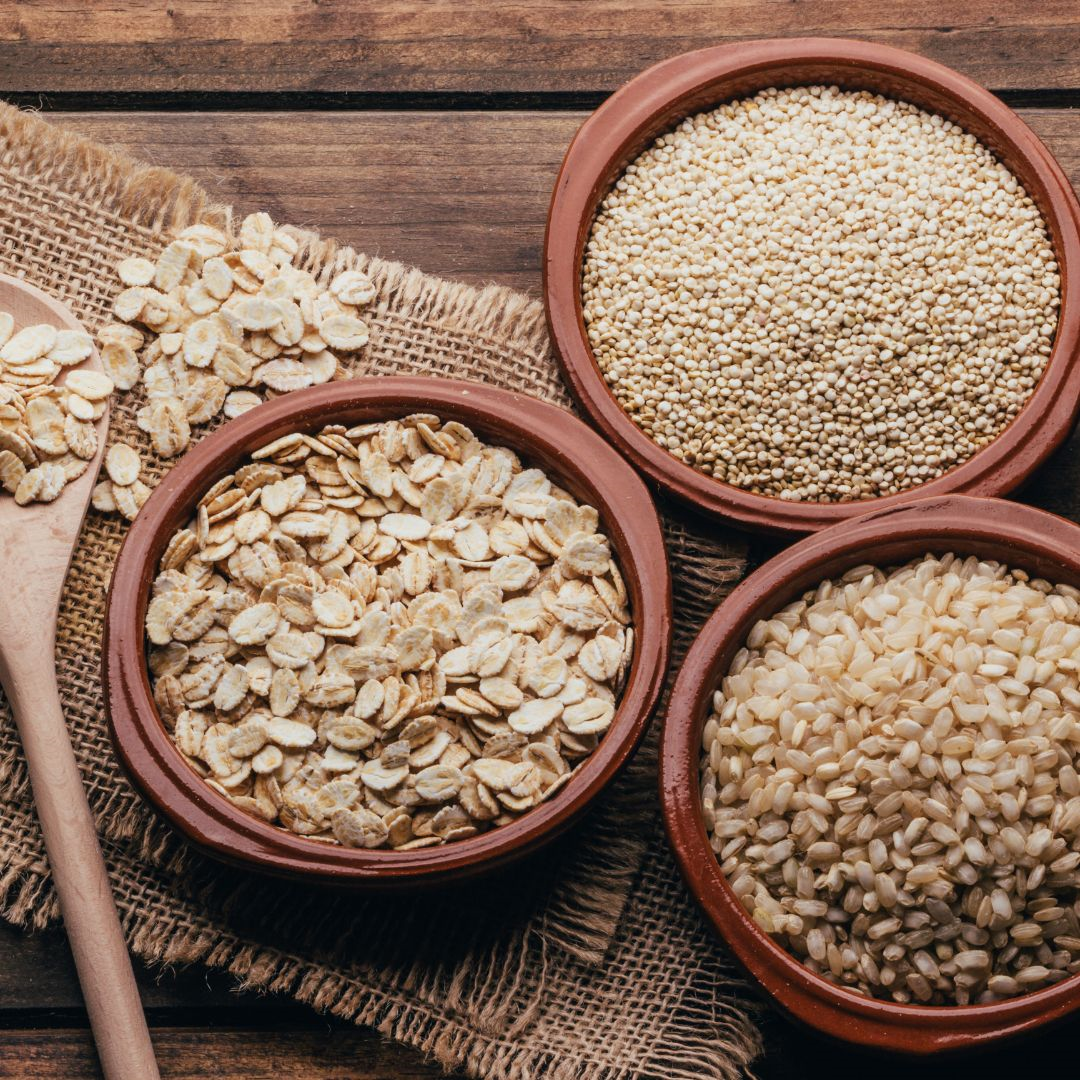
14. Choose Whole Foods
Choosing whole foods is an important aspect of a healthy vegan diet. Whole foods are minimally processed, meaning they are closer to their natural state and retain their full nutrient content. Fruits, vegetables, whole grains, nuts, and seeds are all great sources of essential vitamins, minerals, and fibre.
These foods can also help you feel more satisfied and energized throughout the day, and they are often more affordable than processed vegan foods.
In addition to their health benefits, choosing whole foods can help reduce your environmental impact by minimizing packaging waste and supporting local and sustainable agriculture.
15. Take Care Of Your Mental Health
Transitioning to a vegan lifestyle can be an exciting and positive change, but it can also come with challenges and adjustments. It's important to prioritize your mental health and well-being during this time.
Adopting self-care practices such as meditation, journaling, and time in nature can help reduce stress and promote emotional balance.
Connect with a support group or therapist who can offer guidance and encouragement as you navigate this new lifestyle. Remember to be kind to yourself and take the time to adjust to your new lifestyle.
16. Shop Locally And In-Season
Shopping locally and in season is a great way to reduce your environmental impact and support your local community. Buying produce from local farmers can reduce the carbon footprint of your food by decreasing transportation emissions.
Additionally, buying in-season produce often means it's grown locally, which can also help reduce emissions. Shopping at farmers' markets or participating in a CSA can also help support local farmers and the economy. In addition, in-season produce is often fresher and more flavorful than out-of-season produce shipped from far away.
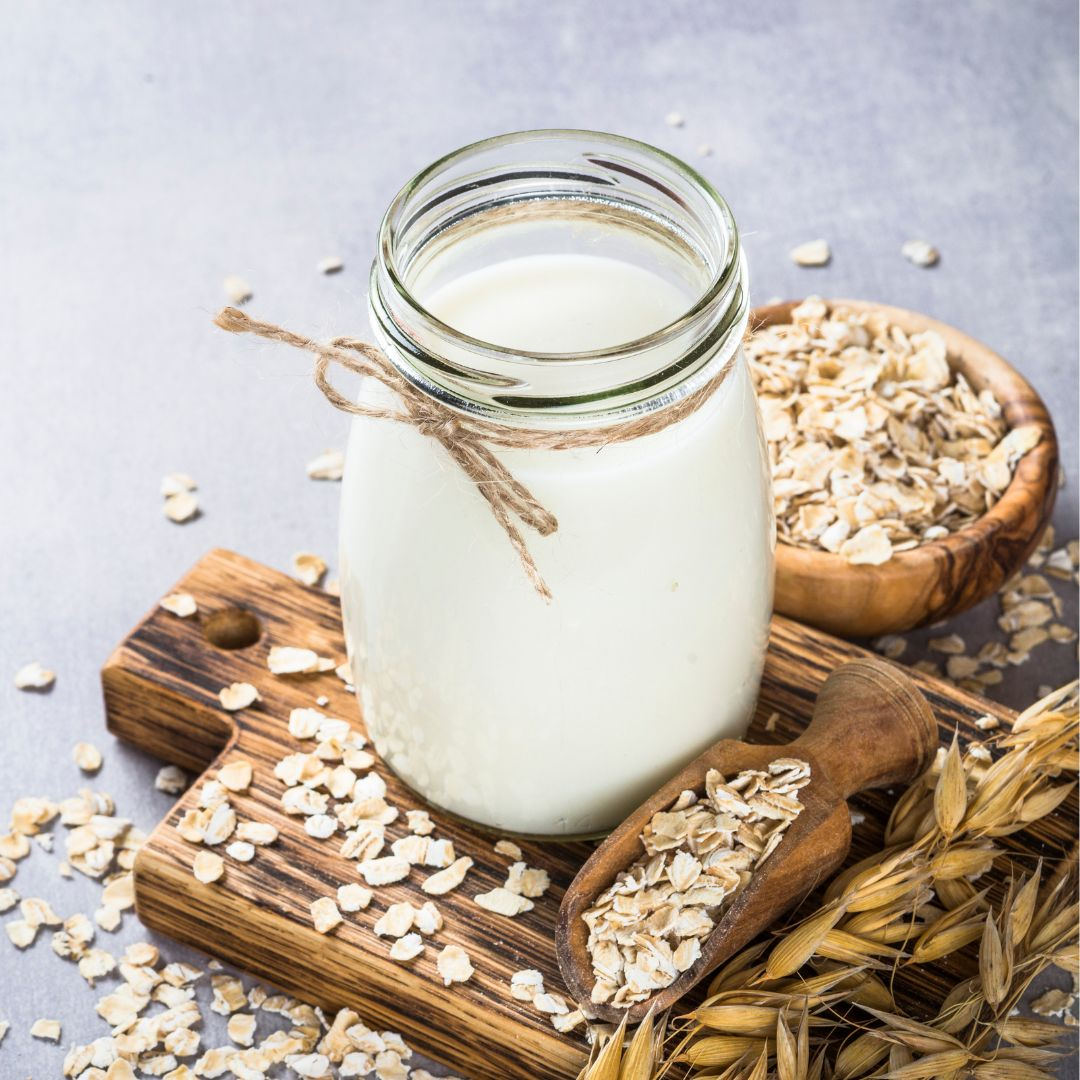
17. Make Veganism A Family Affair
Getting your family involved in your vegan journey can be a great way to make the transition smoother and more enjoyable. You can try out new recipes together, involve them in meal planning, and have open conversations about why you decided to go vegan.
Being patient and understanding is important, as family members may need time to adjust. Start small by gradually introducing more plant-based meals or swapping out certain ingredients in your family's favourite recipes.
Encouraging your family to join your journey can create a sense of togetherness and support as you navigate your new lifestyle.
18. Try Vegan Alternatives To Animal Products
Transitioning to a vegan lifestyle can be challenging, especially if you're used to consuming animal products. Fortunately, there are many vegan alternatives available that can make the transition easier.
For example, try almond, soy, or oat milk instead of cow's milk. Vegan cheese can make from nuts, soy, or tapioca starch; there are even vegan versions of popular meats such as burgers, sausages, and chicken nuggets.
Vegan eggs can make from chickpea flour or tofu. Trying out different brands and products can help you find the ones you enjoy the most and make switching to a vegan lifestyle more enjoyable. Not only are these alternatives kinder to animals, but they are also often healthier and more sustainable options.
19. Support Vegan-Friendly Businesses
Supporting vegan-friendly companies can positively impact the environment and animal welfare. By patronizing establishments offering vegan options, you are sending a message to the business community that there is a demand for plant-based alternatives.
This can encourage more businesses to offer vegan options and help to make veganism more accessible for everyone. Additionally, supporting vegan-friendly companies can create a sense of community and connection with like-minded individuals who share your values.
When you support these businesses, you also support the hard work and dedication of the entrepreneurs and employees working to make a difference in the world.

Conclusion
Transitioning to a vegan lifestyle is a personal journey, and everyone's experience will be unique. However, with these vegan lifestyle tips, you can create a solid foundation for a successful and enjoyable plant-based journey.
Remember to be patient with yourself, celebrate your successes, and seek support from the vegan community when needed. Switching to a plant-based lifestyle is not always easy, but with the right mindset and resources, it can be a truly transformative and rewarding experience for you and the planet.
I trust you enjoyed this article about the 19 Best Vegan Lifestyle Tips. Please stay tuned for more blog posts to come shortly. Take care!
JeannetteZ
>>>Want To Learn How To Create Delicious, Cruelty-Free, Healthy AND 100% Vegan Meals? Try These Awesome Vegan Cooking Courses With A Free 7-DAY MEMBERSHIP<<<
Your Opinion Is Important To Me
Ideas? Thoughts? Questions? I would love to hear from you. Please leave me your questions, experience, and remarks about the 19 Best Vegan Lifestyle Tips article in the comments section below. You can also reach me by email at Jeannette@LivingTheVeganLifestyle.org.
Disclosure
This post may contain affiliate links. I earn from qualifying purchases as an Amazon Associate and other affiliate programs. Please read my full disclosure.
Here are links to some of my favourite articles:
Best Vegan Cottage Cheese Recipes For Your Kids
Best Vegan Parenting Tips For Raising Vegan Kids
Most Delicious Vegan Keto Snack Recipes
11 Best Vegan Avocado Recipes For Your Kids
10 Best Vegan Lentil Recipes For Your Kids

